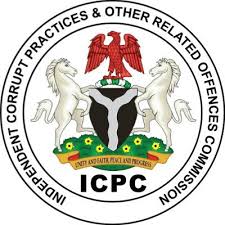By Nkechi Eze
The Nigerian Meteorological Agency (NiMet) has commenced a new phase of institutional reform with the introduction of the Balanced Scorecard Performance Management System, a globally recognised framework aimed at strengthening efficiency, accountability and strategic execution across the agency.
At a kick-off meeting held on Monday at the NiMet Headquarters in Abuja, the agency’s Directors and senior management staff were formally introduced to the structure and purpose of the Balanced Scorecard, as well as its expected impact on performance management and service delivery.
Declaring the session open, the Director General and Chief Executive Officer of NiMet, Professor Charles Anosike, said the agency’s renewed drive for improved performance is anchored on staff welfare and capacity development in line with the Renewed Hope Agenda of President Bola Ahmed Tinubu and the performance bond he signed with the Minister of Aviation and Aerospace Development, Mr Festus Keyamo, SAN.
“We are starting a new journey at NiMet as we prepare to roll out a Balanced Scorecard Performance Management System. It is one of the global management tools organizations use to translate strategy into performance,” Prof. Anosike said. “This meeting will help us improve our strategy formulation and create room for enduring creativity in the agency.”
The DG noted that in today’s knowledge-driven economy, intangible assets such as intellectual property, data, human resources, innovation and brand reputation now define institutional value far more than physical structures or financial inventories. He explained that the Balanced Scorecard will help NiMet align strategy with measurable objectives, providing clarity on roles, responsibilities and performance expectations for all staff.
In his remarks, the Founder and CEO of Balanced Scorecard West Africa, Mr Kayode Sufianu, commended NiMet for taking what he described as a bold and forward-looking step. He said the framework “offers organizations a powerful structure for turning strategy into measurable outcomes,” adding that NiMet’s adoption of the system signals a strong leadership commitment to accountability, innovation and enhanced public service delivery.
Professor Anosike also stressed that organisational success depends not just on designing strategies but on the discipline to implement and sustain them. He described the engagement as a foundational session that offers an overview of how the Balanced Scorecard works and prepares the agency for “the demanding but rewarding work ahead.”
He urged staff to embrace the culture of performance management as a driver of productivity and service excellence, adding that NiMet’s capacity to deliver world-class meteorological services will depend on how effectively its people execute the agency’s strategic priorities.

















